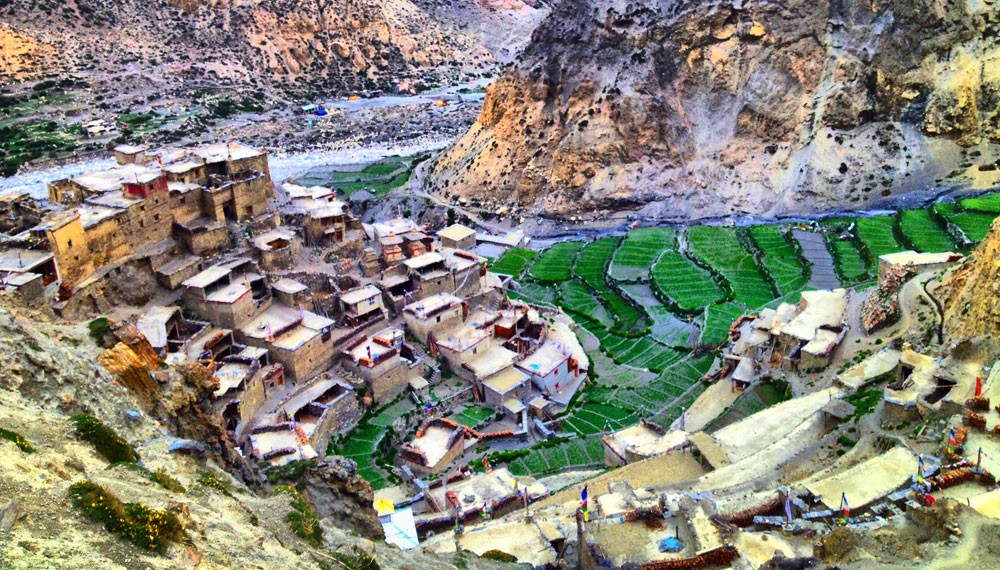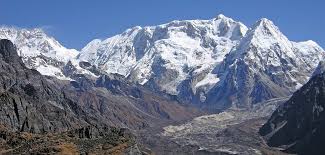Annapurna 2 High Passes Trekking 20 Days

Annapurna 2 High Passes Trek is probably the most famous trek in the world because of its beauty. This trek crosses the two high Passes Kang La and Thorong La of Annapurna.This is new trekking route in Annapurna, and the package cost it comes cheaper that the famous 3 high passes trek in Everest.This trek is good for them who are looking a longer trek in Annapurna.
The Annapurna 2 Passes Trek is for everyone who is physically fit, patient and loves the outdoors. Trekking or hiking experience anywhere in the world is strongly recommended for maximum enjoyment of your 24 days Everest base camp trek, Nepal.
The best time of year for trekking Annapurna 2 high passes are March to May then September to December This trek during monsoon season is going to be a very wet, and winter is not the good trekking season for Annapurna 2 high Passes Nepal trek as very cold temperatures and heavy snowfall may occur.
Health and Safety: Good overall fitness, flexibility, and healthy will ensure you trek safely and comfortably. Those with acute or chronic health conditions impacting their stamina, range of motion, coordination, or balance may have difficulty completing the trek. If you are in doubt about your own physical readiness, consult a physician well in advance of booking your trip! General hiking experience and comfort with the idea of multi-day hiking will also ensure you are 100% ready to trek!
At higher altitudes - the kind we experience frequently on our treks- your cardiac and pulmonary systems are affected by lower oxygen density. Our bodies must adjust to the mountain elevation gradually, or we can become ill. Physical symptoms can range from general breathing difficulties all the way to acute mountain sickness (altitude sickness, soroche, or "the bends"). To avoid altitude-related maladies, we pace our treks appropriately and incorporate acclimatization days throughout the itinerary. There are points throughout many treks during which trekkers may choose to either tackle additional hikes/day trips or rest and relax as their bodies demand.
We take all possible precautions to proactively ensure the safety and wellness of our trekkers, but rest assured that our guides are trained and experienced in dealing with emergencies. Each guide is trained in first aid. In the case of altitude sickness, you will immediately be taken to a lower altitude. If necessary, your guide will utilize your travel insurance information to call a rescue helicopter, and you will be flown to Kathmandu or Pokhara for medical attention.
We ensure the travel safety of all our trekking guests, both male and female. Nepal, on the whole, is both very safe and welcoming of foreign visitors. We have longstanding, strong relationships with the lodges we frequent, and know them to be safe and reliable. In addition our guides are consistently mindful of all guests' whereabouts while trekking. We travel in small groups, all the better to easily maintain continual contact.
Practical Matter: We require an advance payment deposit into our company bank account and the remaining balance you could pay once you would arrive in Kathmandu at our office before the trip departure. We understand things happen and plans change and will refund your deposit reducing a $150 cancellation fee. Once we have booked your trip arrangement your deposit is non-refundable. If your travel dates change we can generally reschedule you at no extra charge, but please provide at least 7 days advance notice.
Sometimes in the case that trekkers finish ahead of schedule or they end up stopping a trek early for health or personal reasons. If this is the case please understand that we can not offer any refunds for unused days on the trek. Please understand that our costs are the same as we have an obligation to pay our guides and porters for the time they have committed.




